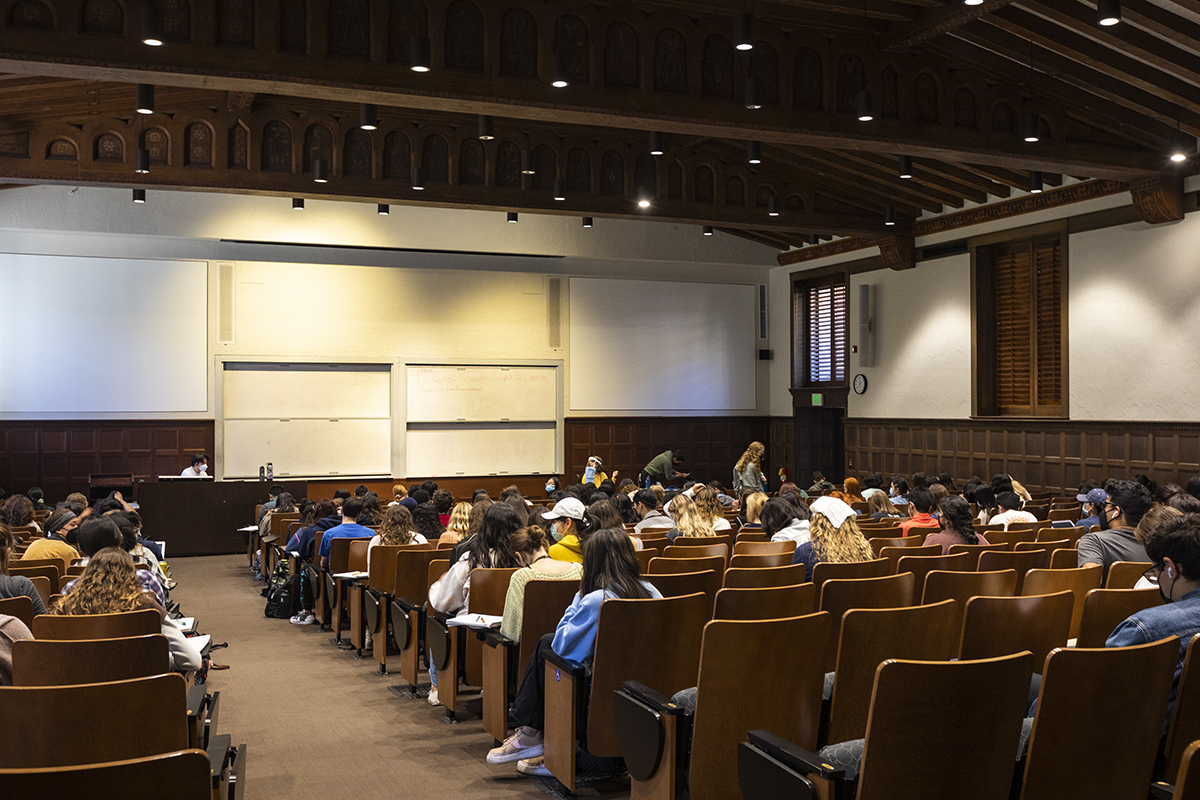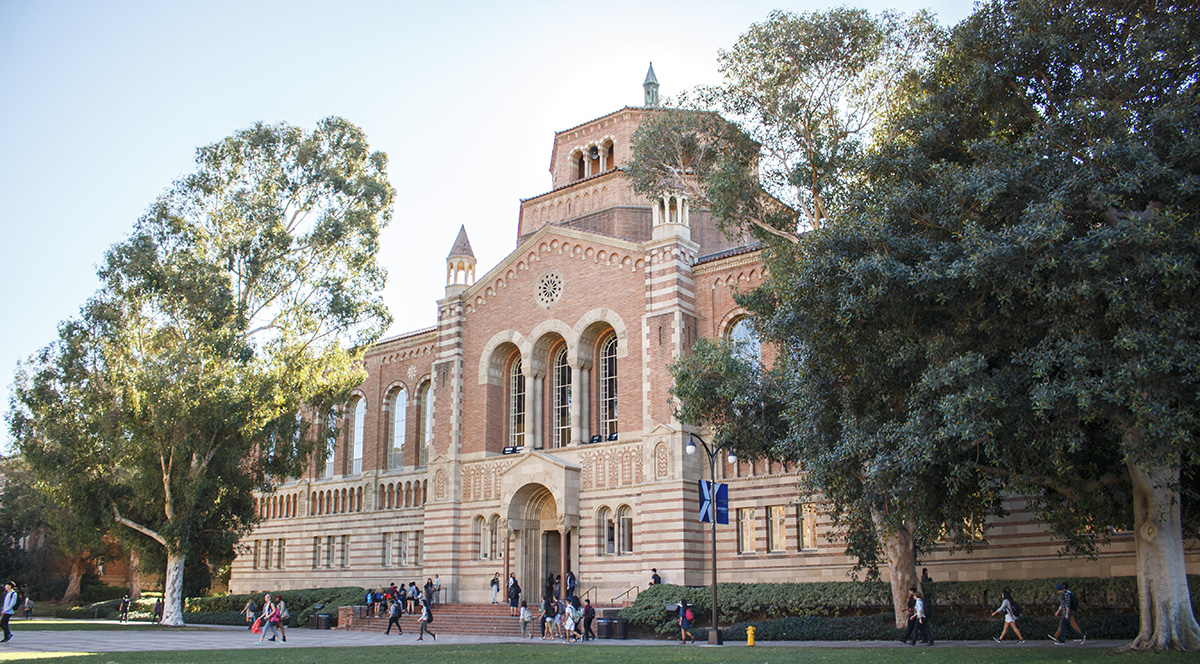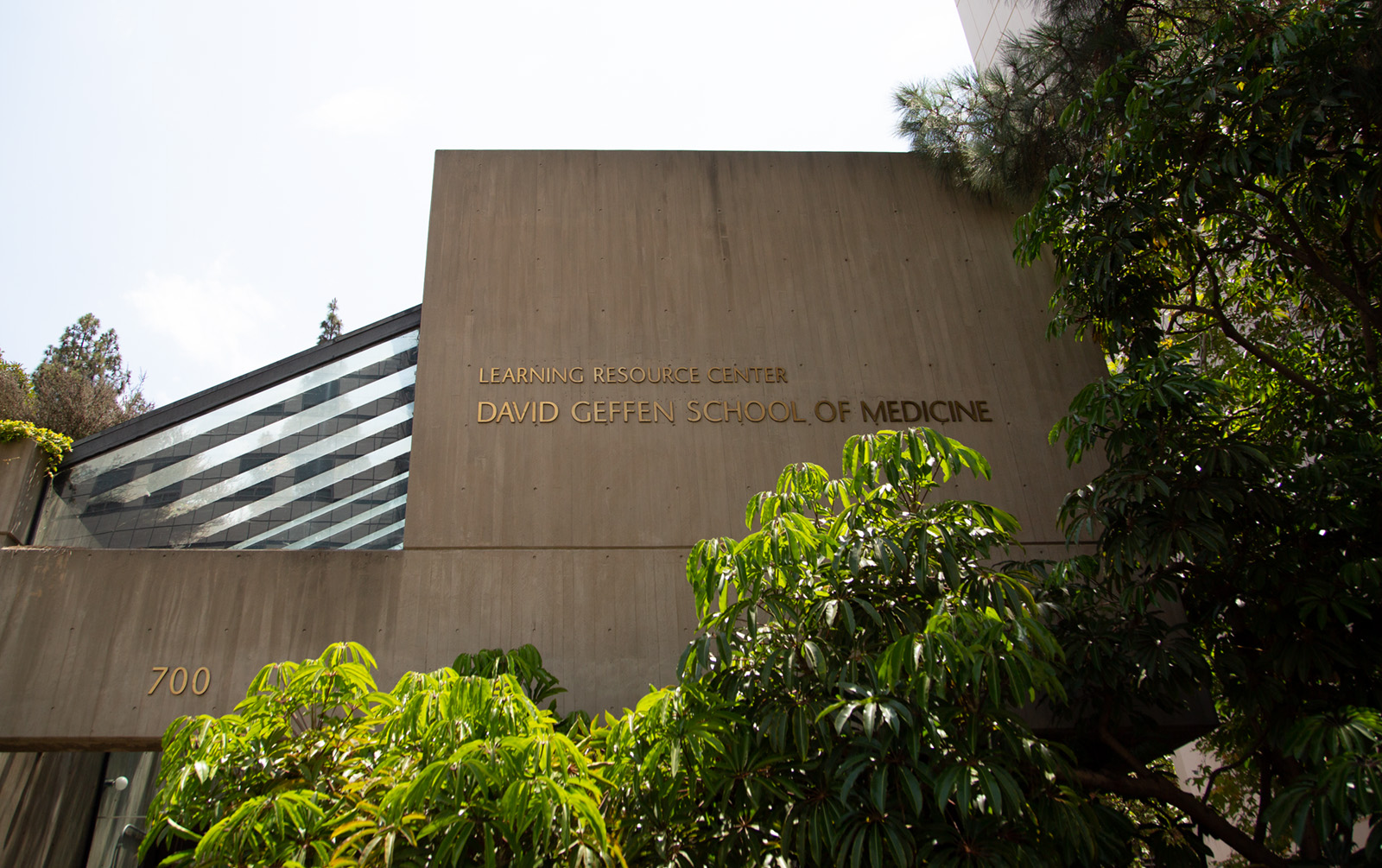UCLA community discusses STEM ‘weeder courses’ and their difficulties

A large lecture hall with students is pictured. Members of the community discussed benefits and drawbacks of some of the large introductory STEM classes, sometimes known as “weeder classes,” at UCLA. (Anya Yakimenko/Daily Bruin staff)
By Kai Nikchevich
Oct. 26, 2023 9:27 a.m.
This post was updated Oct. 26 at 10:51 p.m.
After four weeks in her introductory chemistry course with nothing but physics material, Ella Ghazinouri felt out of her depth.
“I thought it was really difficult, (but) I still just kept pushing through this class,” said Ghazinouri, a third-year chemistry student. “I was like, ‘Really? … This is not needed. Chemistry is a perfect weeder course.”
Ghazinouri, like many other students in STEM, took a variety of introductory science courses – or, as they are more commonly known on college campuses, “weeder classes.” Morris Dweck, a former teaching assistant for the chemistry department, said weeder classes deal with brand-new material that students have never seen before, adding that the fast-paced quarter system makes the content of these classes seem overwhelming to most students.
“It’s a divergence from your previous way of learning,” said Dweck, who is also a doctoral student in chemistry. “A lot of students don’t figure that out until after the first midterm. They already did bad on the first midterm, and they feel weeded out, so they quit.”
Ghazinouri said she thinks such classes limit people from exploring other academic topics by making them less interested rather than more open-minded about them.
But Dweck and Jay Phelan, an academic administrator for the Life Sciences Core Education, said they believe that UCLA’s classes should not be called weeder classes. Phelan said that while he does understand some students do not do well in lower-division classes because the material does not resonate with them, the courses are not intentionally structured to encourage students to switch out.
Phelan added that the life sciences division has restructured its courses within the past decade in order to improve accessibility for students and improve retention. Some students who feel they are not succeeding might not have found their niche of interest yet, he added.
“Sometimes, maybe, you’re not liking it or thriving in it because it’s just an aspect of biology that doesn’t resonate with you,” Phelan said.
However, he acknowledged that for some students, the material might not be a good fit.
Similarly, Dweck said he thinks the low success in these lower-division courses can partially be attributed to students realizing that a certain field is not of interest to them anymore.
Ghazinouri said she noticed students around her struggle in her lower-division chemistry series, and most students were taking it not out of interest in the subject, but because it was required for their major.
She also said she felt disconnected from her peers, finding it hard to network and make long-lasting friendships because of the low number of students in her major. For example, many of the students in her physics courses were engineers, which sometimes made her feel awkward because they were more familiar with the subject, she said.
However, Ghazinouri said she decided to stick with her major because it is what she is passionate about, despite the difficulties she faced. She added that she views her experiences in weeder classes as eye-opening.
“The point of lower-division classes (is) you’re taking a lot of subjects that are different than your major, rather than your upper divisions that are solely focused on your major,” Ghazinouri said. “I feel like it’d be a good process … in becoming more open-minded.”
In the future, Ghazinouri said she hopes to see these introductory courses also discuss how the information learned is relevant to students’ future studies, such as by explaining how certain physics equations might be applied to real-life situations for engineers.
Phelan added that many students eventually do better in upper-division courses since they have more options for what they want to pursue and are more engaged in the material.
Dweck and Phelan said they hope students seek out help from peers and professors to help their chances of success.
“The idea that we would want to somehow push some people out of the subject that we’re in runs counter to everything I am,” Phelan said. “I want people to realize that, ‘I love science. I love biology. I can do it.’”






